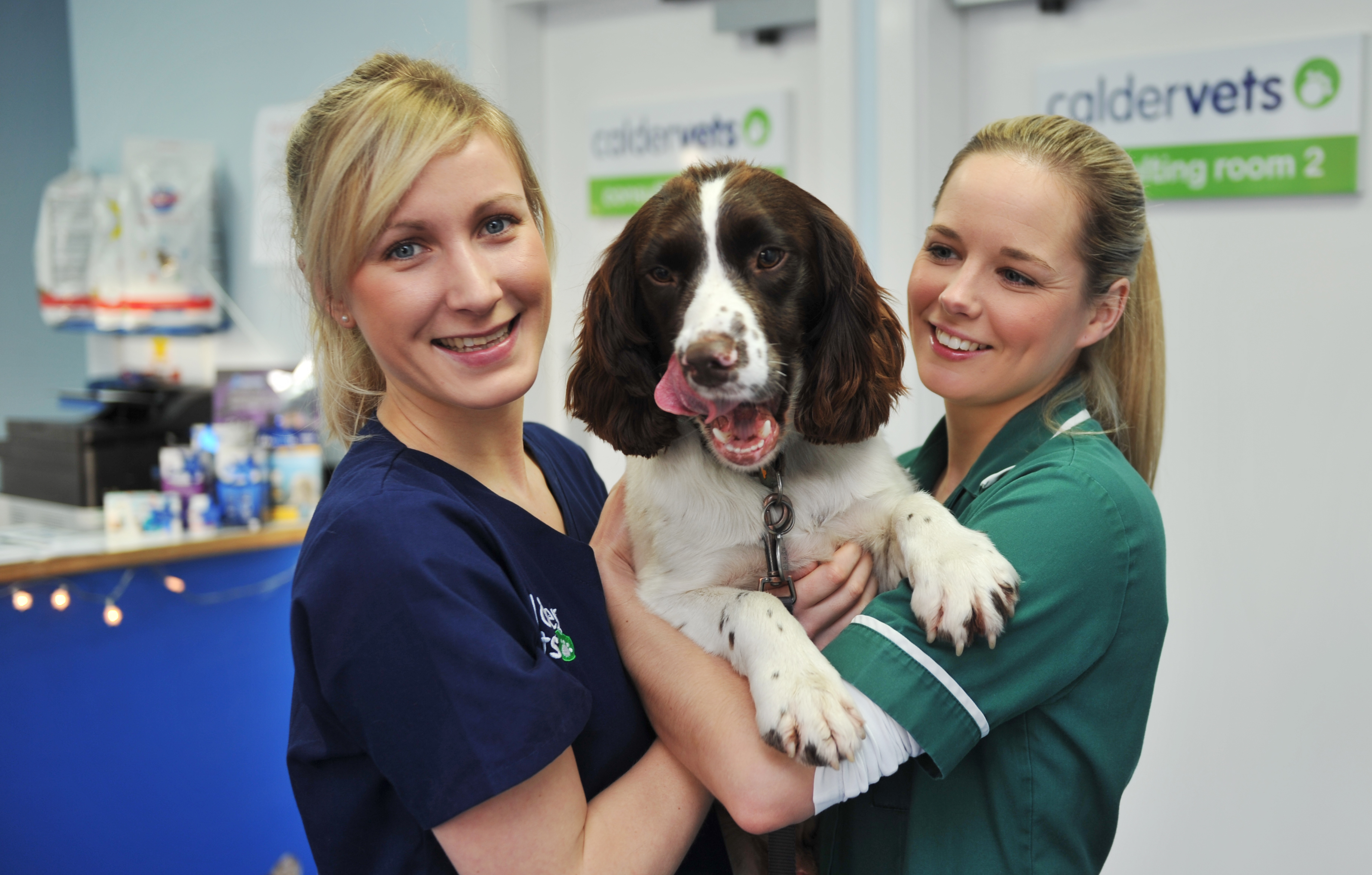
Prevention is better than cure, which is why we’re urging pet owners to look after their animal’s teeth to improve oral health and reduce the risk of tooth and gum disease. We’re highlighting the importance of regular check-ups by offering dental appointments at our practices.
Introducing dental checks and scale and polish treatments into your pet’s life might be daunting but it’s vital to ensure they’re healthy.
Our appointments include an initial check inside the pet’s mouth, looking at their teeth and gums, as well as a discussion with one of our oral care nurses about home dental care.
Cocker Spaniel Ted visited us for teeth extractions, as well as scale and polish treatments, and the results were extremely successful. You can see the build up of plaque in his teeth and the cleanliness of them post-treatment.
One of the most important reasons to maintain your pet’s oral health is to prevent periodontal disease, a collective term for several inflammatory conditions in the mouth. It is surprisingly common in dogs and cats, with studies showing more than 70 per cent of cats and 80 per cent of dogs over three years old are suffering from some form of it.
Periodontal disease starts when plaque and bacteria accumulate on the teeth and build up over time, causing inflammation. This can lead to gingivitis (inflammation of the gums) or a build-up of calculus or tartar – a substance that occurs when plaque calcifies and causes discolouring of the teeth.
Without preventative home care, gingivitis will begin to occur within one to three weeks of professional cleaning, so it’s important to introduce dental care into your pet’s daily routine.
The consequences of periodontal disease are:
• Halitosis (bad breath)
• Tooth loss
• Oral-nasal fistula (an abnormal opening between the oral and nasal cavities)
• Tooth root abscess
• Fractured jaw
• Infection in the jaw bone
• Blindness
• Oral cancer
• When bacteria builds up it can enter the blood stream, which can affect the heart, liver and kidneys
Dental radiography is a vital tool in dentistry as it enables us to diagnose hidden pathology, implement a suitable treatment plan and ensure treatment has been successful. It can reveal underlying pathology in up to 27 per cent of dogs and 40 per cent of cats where there were no abnormal findings on examination. Dental radiographs will show up abscesses, resorption or ankylosis which is where the tooth root fuses to the bone.
Dental X-rays are extremely important as they give an indication of what’s happening under the gum line, where extractions are needed, help the vet see what the root is like prior extraction and help ensure they extract the entire tooth root.
We also have British Veterinary Nursing Association (BVNA) and British Veterinary Dental Association (BVDA) certified oral care nurses at our practices to ensure pets receive gold standard dental care from examination right through to treatment.
If you’d like to find out more, please call us on 01924 465592.


News